- A Learning Systems Approach to Cross-Cultural Virtual Organizations
by Lynn Ilon
Globally linked virtual organizations (VOs) hold the promise of successfully tackling complex problems and designs that lead social, industrial and technological innovation. Yet these cross-cultural virtual organizations (CCVOs) appear to be hampered by problems of communication, conflict and productivity. One approach to mitigating these problems is to ask how such CCVOs can pattern the so-called
- Adapting Smartphones as Learning Technology in a Korean University
by Lynn Ilon
iPhone and Android technology only became available in Korea in 2010, yet today, nearly every student in Korea’s top university carries either an iPhone or Android enabled phone. Students are plugged in and communicating constantly. One Lifelong Learning class1 investigated the use of smartphones among Education and Engineering students. Both the process of the class
- Big Stories, Small Stories: Beyond Disputatious Theory Towards ‘Multilogue’
by Lynn Ilon
As an ‘international’ student of comparative education, I entered the field of comparative international education, bringing with me a very different academic tradition and cultural history. There was a reason I had come into the fi eld with my own small stories, thinking they meant something in a larger canvas, and I was not alone:
- Building Strength Through Knowledge Networks in Higher Education
by Lynn Ilon
The paper discusses the underlying economic shifts that cause a paradigm shift in the way that higher education contributes to society’s progress. In particular, the movement from industrial production towards a knowledge economy and from national systems of education toward global networks of learning has laid the foundation for this paradigm shift. The value of
- Development of a Global Lifelong Learning Index for Future Education
by Lynn Ilon
Since the transition from industrial society to a knowledge-based society, the source of national competitiveness is also changing. In this context, lifelong education has become a new competitive strategy for countries. This study broadly consists of three steps. Step I features a theoretical review of global lifelong learning indices and a comparison of the indices
- Fostering Community-based Learning Leadership: A Korea–Zambia Project Design
by Lynn Ilon
Leadership in education begins with the establishment of a strong link between education and a healthy society. In the world’s poorest areas, too often formal education systems have been imported with little thought as to how they integrate with the life of local communities. As a result, development projects aimed at education focus on inputs
- How Collective Intelligence Redefines Education
by Lynn Ilon
While collective intelligence systems become ubiquitous for learning in knowledge industries, civic life and personal lives, they have yet to be embraced into formal schooling systems. Still, learning, knowledge and assessment protocols adhere, in large part, to the educational system’s logic of the industrial era. The temptation is to view schooling as falling behind with
- Learning Implications of Korean Online Communities: Towards a New Paradigm of Social Learning
by Lynn Ilon
- Postmodernism Debates and Comparative Education: A Critical Discourse Analysis
by Lynn Ilon
Detailed discourse analysis is presented for two articles that suggest that postmodernism has little to offer comparative education and should be resisted. The two texts, focusing on postmodernism as the antithesis of comparative education and on the “lost promise” of postmodernism, demonstrate the use of language to convey messages that limit or control the meaning
- Re-Imagining Comparative Education: Postfoundational Ideas and Applications for Critical Times
by Lynn Ilon
Re-Imagining Comparative Education presents a re-imagining of the field of comparative education, and its responses to contemporary social theory. The essays included seek to substantively open up new avenues of theorizing and research by exploring the application of post-foundational theoretical perspectives in the field, through readable and understandable case studies. Re-Imagining Comparative Education is one
- Renegotiating Desire in North America: Risky education
by Lynn Ilon
This article assumes that desire, like fear, is an inescapable human condition; both are conditions that construct us as subjects of social relationships, and are capable of being embedded in discourse, episteme and institutions. This article is framed around three questions. The first: how can desire be understood and applied to the various processes of
- The Cost of Not Educating the World’s Poor: The New Economics of Learning
by Lynn Ilon
The book traces how global instability, problems of environmental degradation, spread of global disease, migration and political instability are a cost of viewing the uneducated poor as separated from a network of fast-growing global knowledge. This book shows how powerful global learning systems are rapidly forming and linking the rich world with the world
- Using Collective Adaptive Networks to Solve Education Problems in Poor Countries
by Lynn Ilon
Can education problems in poor countries be successfully addressed using knowledge economics? The old development model posits that poor countries must follow the rout e of richer countries, progressing up a scale of development. But, an emerging theory of development and collective adaptive applications applied to new learning theory suggests new possibilities. This paper outlines
- 글로벌한 관점에서 세계와 소통하는 안목을 키우다
by Lynn Ilon
 by Lynn IlonGlobally linked virtual organizations (VOs) hold the promise of successfully tackling complex problems and designs that lead social, industrial and technological innovation. Yet these cross-cultural virtual organizations (CCVOs) appear to be hampered by problems of communication, conflict and productivity. One approach to mitigating these problems is to ask how such CCVOs can pattern the so-called
by Lynn IlonGlobally linked virtual organizations (VOs) hold the promise of successfully tackling complex problems and designs that lead social, industrial and technological innovation. Yet these cross-cultural virtual organizations (CCVOs) appear to be hampered by problems of communication, conflict and productivity. One approach to mitigating these problems is to ask how such CCVOs can pattern the so-called by Lynn IloniPhone and Android technology only became available in Korea in 2010, yet today, nearly every student in Korea’s top university carries either an iPhone or Android enabled phone. Students are plugged in and communicating constantly. One Lifelong Learning class1 investigated the use of smartphones among Education and Engineering students. Both the process of the class
by Lynn IloniPhone and Android technology only became available in Korea in 2010, yet today, nearly every student in Korea’s top university carries either an iPhone or Android enabled phone. Students are plugged in and communicating constantly. One Lifelong Learning class1 investigated the use of smartphones among Education and Engineering students. Both the process of the class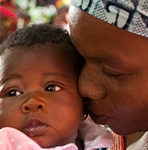 by Lynn IlonAs an ‘international’ student of comparative education, I entered the field of comparative international education, bringing with me a very different academic tradition and cultural history. There was a reason I had come into the fi eld with my own small stories, thinking they meant something in a larger canvas, and I was not alone:
by Lynn IlonAs an ‘international’ student of comparative education, I entered the field of comparative international education, bringing with me a very different academic tradition and cultural history. There was a reason I had come into the fi eld with my own small stories, thinking they meant something in a larger canvas, and I was not alone: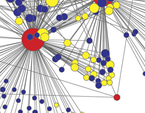 by Lynn IlonThe paper discusses the underlying economic shifts that cause a paradigm shift in the way that higher education contributes to society’s progress. In particular, the movement from industrial production towards a knowledge economy and from national systems of education toward global networks of learning has laid the foundation for this paradigm shift. The value of
by Lynn IlonThe paper discusses the underlying economic shifts that cause a paradigm shift in the way that higher education contributes to society’s progress. In particular, the movement from industrial production towards a knowledge economy and from national systems of education toward global networks of learning has laid the foundation for this paradigm shift. The value of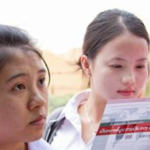 by Lynn IlonSince the transition from industrial society to a knowledge-based society, the source of national competitiveness is also changing. In this context, lifelong education has become a new competitive strategy for countries. This study broadly consists of three steps. Step I features a theoretical review of global lifelong learning indices and a comparison of the indices
by Lynn IlonSince the transition from industrial society to a knowledge-based society, the source of national competitiveness is also changing. In this context, lifelong education has become a new competitive strategy for countries. This study broadly consists of three steps. Step I features a theoretical review of global lifelong learning indices and a comparison of the indices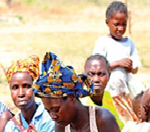 by Lynn IlonLeadership in education begins with the establishment of a strong link between education and a healthy society. In the world’s poorest areas, too often formal education systems have been imported with little thought as to how they integrate with the life of local communities. As a result, development projects aimed at education focus on inputs
by Lynn IlonLeadership in education begins with the establishment of a strong link between education and a healthy society. In the world’s poorest areas, too often formal education systems have been imported with little thought as to how they integrate with the life of local communities. As a result, development projects aimed at education focus on inputs by Lynn IlonWhile collective intelligence systems become ubiquitous for learning in knowledge industries, civic life and personal lives, they have yet to be embraced into formal schooling systems. Still, learning, knowledge and assessment protocols adhere, in large part, to the educational system’s logic of the industrial era. The temptation is to view schooling as falling behind with
by Lynn IlonWhile collective intelligence systems become ubiquitous for learning in knowledge industries, civic life and personal lives, they have yet to be embraced into formal schooling systems. Still, learning, knowledge and assessment protocols adhere, in large part, to the educational system’s logic of the industrial era. The temptation is to view schooling as falling behind with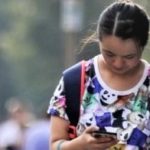 by Lynn Ilon
by Lynn Ilon by Lynn IlonDetailed discourse analysis is presented for two articles that suggest that postmodernism has little to offer comparative education and should be resisted. The two texts, focusing on postmodernism as the antithesis of comparative education and on the “lost promise” of postmodernism, demonstrate the use of language to convey messages that limit or control the meaning
by Lynn IlonDetailed discourse analysis is presented for two articles that suggest that postmodernism has little to offer comparative education and should be resisted. The two texts, focusing on postmodernism as the antithesis of comparative education and on the “lost promise” of postmodernism, demonstrate the use of language to convey messages that limit or control the meaning by Lynn IlonRe-Imagining Comparative Education presents a re-imagining of the field of comparative education, and its responses to contemporary social theory. The essays included seek to substantively open up new avenues of theorizing and research by exploring the application of post-foundational theoretical perspectives in the field, through readable and understandable case studies. Re-Imagining Comparative Education is one
by Lynn IlonRe-Imagining Comparative Education presents a re-imagining of the field of comparative education, and its responses to contemporary social theory. The essays included seek to substantively open up new avenues of theorizing and research by exploring the application of post-foundational theoretical perspectives in the field, through readable and understandable case studies. Re-Imagining Comparative Education is one by Lynn IlonThis article assumes that desire, like fear, is an inescapable human condition; both are conditions that construct us as subjects of social relationships, and are capable of being embedded in discourse, episteme and institutions. This article is framed around three questions. The first: how can desire be understood and applied to the various processes of
by Lynn IlonThis article assumes that desire, like fear, is an inescapable human condition; both are conditions that construct us as subjects of social relationships, and are capable of being embedded in discourse, episteme and institutions. This article is framed around three questions. The first: how can desire be understood and applied to the various processes of by Lynn IlonThe book traces how global instability, problems of environmental degradation, spread of global disease, migration and political instability are a cost of viewing the uneducated poor as separated from a network of fast-growing global knowledge. This book shows how powerful global learning systems are rapidly forming and linking the rich world with the world
by Lynn IlonThe book traces how global instability, problems of environmental degradation, spread of global disease, migration and political instability are a cost of viewing the uneducated poor as separated from a network of fast-growing global knowledge. This book shows how powerful global learning systems are rapidly forming and linking the rich world with the world by Lynn IlonCan education problems in poor countries be successfully addressed using knowledge economics? The old development model posits that poor countries must follow the rout e of richer countries, progressing up a scale of development. But, an emerging theory of development and collective adaptive applications applied to new learning theory suggests new possibilities. This paper outlines
by Lynn IlonCan education problems in poor countries be successfully addressed using knowledge economics? The old development model posits that poor countries must follow the rout e of richer countries, progressing up a scale of development. But, an emerging theory of development and collective adaptive applications applied to new learning theory suggests new possibilities. This paper outlines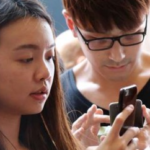 by Lynn Ilon
by Lynn Ilon